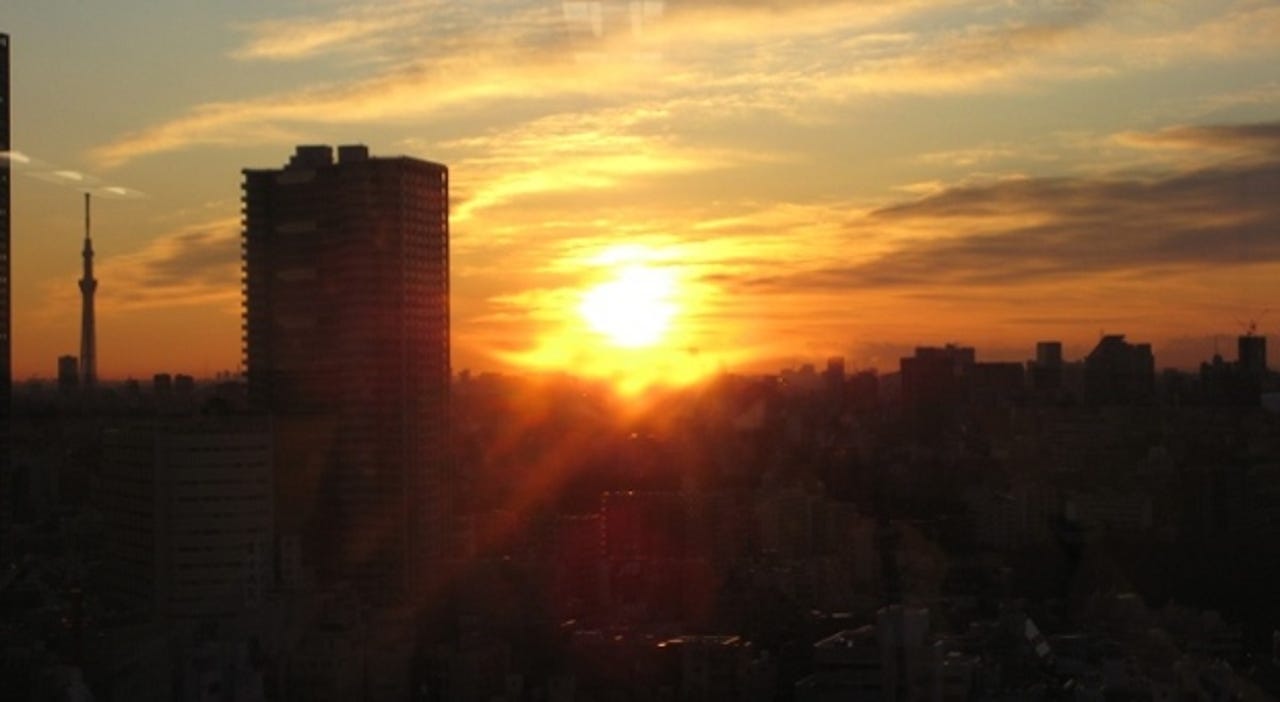How panic spreads: Japan's resilience to earthquakes

In the last few days more and more information about the potential for another big quake in Japan has surfaced, and it's caused quite a bit of a stir.
The story, put simply, was alarming.
Experts from Tokyo University had released new information that suggested there was a 70 percent chance of a significant 7.0 or greater magnitude earthquake in Japan's capital within the next four years.
It started with a report in the Yomiuri Shimbun newspaper that quickly spread, with reports and stories from almost all of Japan's major newspapers and news sites following suit, along with national television coverage.
As you know, no news travels quite as quickly as bad news, and it wasn't particularly long before it hit international sites, getting coverage in the Guardianand theTelegraph, along with others.
Twitter followed soon after, with hundreds of tweets cropping up about the imminent threat of a major quake in Japan, stirring up people's fears even more, and with some users even inflating the risk to 75 percent.
The statistics are alarming --- no mistake. But this news wasn't actually new.

Mainichi Shimbun'sTakao Yamada, got to the heart of the matter, and was quick to find that this brief media panic was exactly that.
In fact, the University of Tokyo’s Earthquake Research Institute had released these results last year as part of predictions for the next thirty years. The original statistics --- whilst still rather scary --- were not so immediate.
The prediction was instead that there would be a 98 percent chance of a 7.0 magnitude earthquake in the Tokyo area in the next thirty years. According to Prof. Naoshi Hirata, the statistics are the same but presented on two different scales.
Give people thirty years to deal with the possibility of another earthquake, and the news can slip by more or less unnoticed. Give people only four years, and they react accordingly.
Adding fuel to the flames was the newly released information that an active 200km fault line --- probably caused by the Tohoku earthquake --- was discovered off Honshu's Kii peninsula. On top of that, a spattering of heavy tremors in the Tokyo region over the weekend made the threat feel real.
It got people thinking: Is this happening much more regularly than usual?
I certainly felt that way, although I didn't feel qualified to say what was 'usual' at all.
There was the definite feeling that there was just more seismic activity hitting the capital, and the stubborn part of me that had told all the naysayers who had called me crazy for going to Japan started to doubt itself.
The very first earthquake I experienced in Japan was at Yoyogi Park. It was the first time I had visited the large park --- equivalent to New York's Central Park --- and it was late at night.
The major spectacles at that time were lit up fountains in various colours, late-night joggers, teenagers sneaking off to make out, and not much else. I was sat on the ground --- and the feeling was incredibly surreal --- the ground just started to rock back and forth like a swing.
My friend, who was mid sentence when the tremor started, just dismissed it with a light, "Oh, hey, an earthquake", and that was it. Considering that all three of the friends I was talking with had been here during the heights of the Tohoku earthquake, a tiny tremor like this was absolutely nothing.
To me, it was impressive.
More impressive was the way that seconds later every bird in the entire park just went crazy. I had heard that animals reacted strongly to earthquakes, but I'd never really expected it to be so intense. It made me feel like I'd been dropped directly into the 'foreshadowing' sequence in a horror film.
A few minutes later a helicopter passed overhead, ("Collecting data," my better informed friend told me), and all three of their phones lit up with earthquake warnings.
They told me that the warnings usually come after the fact, and that they'd taken hours to arrive after the Tohoku earthquake, meaning that when they were being warned of a big, impending earthquake, all they could say whilst watching the aftermath unfold was: "Obviously."
Every major mobile network in Japan has simultaneous broadcasting services to send out early warnings when an earthquake is detected, and it is a mandatory requirement for all 3G phones out on the market.
Although the major overseas manufacturers do not share this system, Apple announced in August last year that its iOS 5 would include an early warning system for iPhone users.
In retrospect, that first earthquake was positively tiny in scale to some that I've experienced since.
On Saturday morning I was woken up by a 5.5 magnitude tremor, with an epicentre very close to Tokyo, and was pleased to find that all of the anti-earthquake measures fitted into my apartment were fully operational.
All my drawers were locked into place; the windows too, and less conveniently, the elevator stopped dead. It went a long way to appeasing the part of my brain that had been devouring news reports about earthquake fears all week.
It still fascinates me how completely unaffected most people here are by the tremors. Everything just keeps going, because they've seen this all before and worse, and there's still grocery shopping to be done.
I'm aware of the fact that tremors and small quakes are actually very common in Japan, because absolutely everybody told me about them before I came here. To say that people thought I was kind of mad to want to come here, in light of the situation in Fukushima also would be an understatement.
It's more than a little reassuring to read an article like Takao Yamada, when, as an ex-pat in Japan these English language news reports are the best information I can get.
I also keep Japan's meteorological agency webpage bookmarked and ready to go in case of an emergency, which also has an English language option for Japanese beginners like myself.
Although the panic caused by these somewhat skewed statistics has been blown out of proportion, it has provided a welcome wake-up call for people in the capital, reminding them that they must be prepared.
For me, as a stranger in a strange land, it's reminded me that no matter how advanced the tech in my home is to help in an earthquake. It might not be enough. No matter how many 'earthquake' alerts I attach to my phone, they'll probably arrive a little too late.
No matter how many English reports are available --- the news is going to be in Japanese first and foremost --- and I need to make sure I'm as prepared as anyone else.
Image source: ZDNet.
Related: